Machiavelli V: Why We Keep Asking “Was Machiavelli an Atheist?”
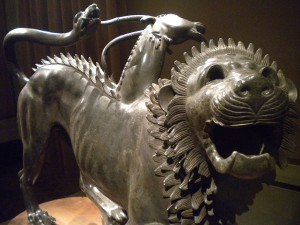
Was Machiavelli an atheist? We don’t know and never will, but we can learn much about our society’s attitudes toward atheism by examining the persistence of the question, and the different reasons we have asked it over and over for centuries even though we know we have no proof.
(This is the last entry in my Machaivelli series. See also Machiavelli Part I, Part I.5, Part II, Part III and Part IV)
No historical discipline can be honestly called “neutral”, but the study of atheism (and of its cousins skepticism, deism, and more general freethought, heterodoxy and radical religion) has always been particularly charged because it is so impossible to be detached from the central question. Setting aside the elaborate and bloody history of religious violence, oppression and entanglement in politics, whether you answer “No,” “Yes,” “Maybe,” or “Sort-of,” the question of whether or not there is a divine force and/or being(s) ordering or governing the cosmos, your answer has an enormous impact on your everyday actions, decision-making, ethics, attitudes toward law and government, and every other corner of the human condition. Even if religion and government had never mixed in the history of the Earth, if tomorrow you encountered irrefutable proof that the answer to the question was the opposite of what you had hitherto believed, your life and actions thenceforth would be radically different. The stakes are high, and personal. This makes it hard for historians to be calm about it.
Historians did not try to be calm about it in the early, juicy days when atheism was first presented as having a history. In the late sixteenth and seventeenth centuries, pamphlets and books discussing famous atheists were a thriller genre, scandalous tales of tyrants and madmen which occupied largely the same niche as biographies of serial killers, or penny museums displaying the death masks of executed murderers. Treatises on “Infamous Atheists” served a slightly more learned audience than wax heads and the numerous early versions of the Sweeny Todd legend, but only slightly, and as they proliferated in printing shops tales of the scandalous excesses of Tiberius and Caligula under the label “atheist” were part morality play, part voyeurism, and part slander as each particular collection targeted its audience’s enemies. French collections accused Italians and Englishmen of atheism while Italian collections accused Frenchmen; Catholic collections accused Martin Luther and John Calvin of atheism, while Protestant collections accused popes and papists, and almost all European collections accused Muslims and Jews of atheism in a spirit of general racism and lack of accountability and lexical clarity.
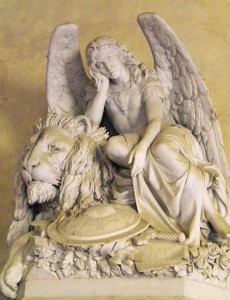
You may note that neither Martin Luther nor Caligula is on record as ever having philosophically attacked the existence of God, but the logic chain of these collections is, from our perspective, backwards: (1) Fear of Hell drives men to good behavior. (2) These men were bad. (3) These men did not fear Hell. (4) These men were atheists. In the Renaissance, sinful living in overt defiance of divine law was considered evidence of atheism, to the degree that we have records of many atheism trials from the fourteenth through sixteenth centuries in which the evidence brought by the prosecution involves no statement of unbelief on the part of the accused. Rather the evidence will be sinful living, promiscuity, homosexuality, gluttony, irreverence of civic and religious authority, anything from a monk taking in a mistress to a drunkard running around in public with no pants on (See Nicholas Davidson, “Atheism in Italy 1500-1700,” in Atheism from the Reformation to the Enlightenment, ed. Michael Hunter & David Wootton (Oxford, 1992), 55-86, esp. 56-7).
Serious attempts to write a history of atheism began in the later nineteenth century, when secularization had progressed enough that an atheist was no longer a thrilling exotic creature, but was instead a black sheep in a land with many, many sheep of which some were even more alarming colors than black. It was also at this point that histories of atheism bifurcated. Some presented pessimistic accounts (by theist authors) of the modern decay of morals as atheism proliferated, while others presented optimistic accounts (by guess who) of the progress of secularization. Even in their more objective accounts, when dealing with earlier periods when atheism was rare and its traces elusive, these historians were, or rather we historians are, still prone to hyperenthusiasm when we think we have found what we are looking for, as whale watchers may mistake any dark shape for a humped back.
Everyone (whether theist or atheist) who studies pre-modern atheism is excited when we find evidence of it. This is because secularization, this brave new world in which atheism is both commonplace and legal, is an essential characteristic of the modern Western world, one of its unique features, differentiating us, here, now, from all earlier times and all other places. When I say the modern world is secularized I do not mean that atheism is a majority or even a plurality—it remains a small minority. What I mean is that atheism is universally present in Western discourse as a coequal interlocutor in theological debate, and all contemporary Western theists have lived their whole lives in contact with atheism, debating with atheists or at least expecting they might have to do so, and generally knowing that atheism is a commonplace alternative to their own views. This is radically different from the pre-modern situation, in which people saw atheists as elusive and invisible enemies (rather like vampires), and most books on the subject described atheism as a form of mental illness (often thought to be inborn), or as a moral perversion (compared in the period to homosexuality), while the genuine philosophical atheist was expected to be so extraordinarily rare that we might see only a couple in a century (such categories are employed by David Derodon in his treatise L’atheism Convaincu (1659), see Alan Kors, Atheism in France (1990), p. 28).
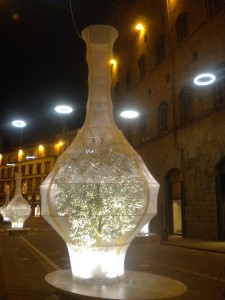
If the study of history is more than mere delight in exciting stories of past exploits, it is an attempt to understand our origins and ourselves. When we comb the past and spot something characteristically modern—be it the scientific method, hygiene, feminism or atheism—we are excited because we have found an early trace of home. Religious tolerance and the presence of atheism as a coequal participant in religious discourse in our own day is part of what makes us radically different from our predecessors. The following claim may seem counter-intuitive, but if I were to send an average modern American theist back in time to the seventeenth century, I think that person would debate more comfortably with an early atheist than with a theist of the same era, because the atheist, while disagreeing with our time traveler, would be disagreeing with somewhat familiar vocabulary and justifications, while the seventeenth-century theist would be going on about Aristotle, and teleology, and angels pushing the Moon around, and other fruits of an alien religious conversation that has no experience of 90% of the theological issues which our modern time traveler is used to considering. The seventeenth-century atheist probably knows what “natural selection” is (he read about it in Lucretius) but the corresponding theist probably hasn’t read such a rare and stigmatized text, so when our time traveler says “I want a proof of the existence of God that stands up against natural selection,” the atheist can have that conversation, while the theist is much less prepared. For most Renaissance theists Thomas Aquinas’ Proof of the Existence of God from Design is unassailable; for us, it’s been assailed every minute of every day of our lives; for the early atheist, it has an assailant, and it’s a similar assailant to the one we moderns are used to, so we can talk about it with the atheist and feel more at home than if we tried to talk to a theist who had never experienced any such attack. A pre-modern theist is, of course, well prepared for attacks from heresies we no longer worry much about: Arianism, Averroism, Antinomianism, but Darwin is a bolt from the blue. Not so much so for the early atheist, who, whether right or wrong, is more prepared for modern conversations than the average theist of his day. Thus, for atheists and believers alike, the history of atheism is the history of theology coming to be shaped more like what we’re used to in the modern era. Hence why even a theist historian thinks it’s super special awesome when we spot a bona fide atheist before the Enlightenment.
The study of what was going on with atheism before the mid-seventeenth century is not, and cannot be, the study of actual atheists. There are none for us to study. There may have been some, there may not, but in a period when saying “I think there is no God” led pretty directly to arrest and execution, no one said it. No one wrote it. If anyone thought it, not even private letters can confirm. Knowing that an atheist won’t fess up in documents, we historians naturally read between the lines, seeking hints of heterodoxy in the subtext of a treatise or the double meaning of a couplet. This is the only place we can realistically expect to find evidence, but it is also prone to giving us false positives. As Lucien Febvre put it in his enormously influential The Problem of Unbelief in the Sixteenth Century: the Religion of Rabelais, we moderns are bound to see that rare beast the atheist around every dark corner. We see him because we want to.
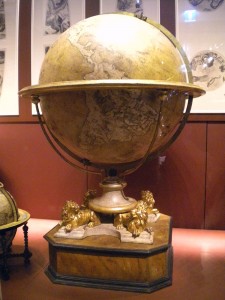
The first really real for sure definite actual atheists who, by golly, said they were atheists (OMG!) date to the mid-seventeenth century, the Libertine movement, when a push toward religious tolerance (largely in the name of stopping the Reformation wars of religion before they wiped out all homo sapiens on the European continent) meant that wealth and power were enough to armor figures like the Earl of Rochester and his circle (including the bone-chilling Charles Blount) sufficiently that they could be known to be atheists and survive so long as they denied it in public. This trend strengthened in the Enlightenment. I often compare late seventeenth- and eighteenth-century atheism to late nineteenth- and early twentieth-century homosexuality: there were circles in which one could let it be an open secret that one was an [atheist/homosexual] and it would be okay so long as one didn’t ruffle too many feathers or say anything in public or in front of civic authorities. One was always at risk of prosecution, and if one wanted to be safe and respected one kept it carefully hidden (as Diderot hid his atheist works), but there was enough sympathy within the apparatus of power that one could write of one’s [atheism/homosexuality] in private letters, and even hint at it in public works, and more often than not be safe. The pre-seventeenth-century atheist enjoyed no such safety, so not even in Renaissance private correspondence (where talk of homosexuality is quite commonplace) do we see even the most timid hand raised when the historian calls back: “Is anybody there an atheist? Anybody? Machiavelli?”
Why is Machiavelli our favorite candidate? Many reasons. First, he is in other ways so very modern. Having spotted someone who thinks about history as we do, and thinks about ethics as we do, and definitely, provably thinks in a very much more modern way than others of his century, he is a natural candidate for other modern twists including atheism.
Second, he was called an atheist by so many people for so long. The mystique of vague, beard-stroking villainy invoked by the term “Machiavellian” (Note: Machiavelli did not have a beard) falls nicely into the pre-modern logic chain: (1) Fear of Hell drives men to good behavior. (2) Machiavelli advocates sinful behavior including lies, betrayal, murder and reign by terror. (3) Machiavelli does not fear Hell. (4) Machiavelli was an atheist.
But there are more focused reasons than that. If we return to Febvre’s warning that we are prone to spot atheists in every shadow, Febvre argues that, instead of seeking the rare beast of our desiring, we should instead confine ourselves to searching for a habitat capable of supporting him; only then can we safely say that we have found him, not his shadow. By “habitat” Febvre means the apparatus of other ideas related to atheism which make atheism easier and more likely.
Imagine that you are a biologist studying a particular fungus. This fungus is hard to find, but often grows around the roots of a particular tree species, with which it has an unexplained but well-documented symbiosis. You thus survey mainly regions where this tree is common. And if you hope to trace your fungus back to before material records survive, you might trace the history of that tree species, through fossils or early human artifacts made of its wood, and conclude that, while you can’t be sure the fungus was there too, the odds are certainly better than the odds of it having been in places where its tree friend was unknown. You have not provably found your fungus, but what you have is certainly enough to talk about, and enough to get people excited if your fungus is a truffle and may yield millions in delicious profit if your information leads to improved cultivation.

Now, for the truffle substitute the elusive pre-1650 atheist, and for the tree substitute the ancient Greek theory that matter is made of atoms. The two are unrelated, and the atomic theory does not attack theism in any way, but it is certainly easier for atheism to flourish when “How was the world made if God didn’t do it?” can be answered with “Atoms interacting chaotically in the void clumped together to form substances… bla bla… planets… bla bla… natural selection… bla bla… people etc.” instead of “I don’t know.”
“I don’t know,” is the centerpiece here. Medieval and Renaissance Europe had perfectly respectable answers to all scientific and sociological questions, they just all depended on God all the time. Take gravity, for example. Celestial bodies are moved by angels. As for why some earthly objects fall and others rise, morally inferior objects fall down toward Satan and morally superior ones rise up toward God, sorting themselves out into natural layers like oil and water. Stones sink in water because Water is superior to Earth, hot air rises because Fire is superior to Air, and virtuous men go to Heaven because good souls are light and wicked souls are heavy with sins which make them fall to the circle of Hell corresponding to the weight of their sins: nine circles separated out in layers, again like oil and water. God established the first societies, handed down the first laws, created the first languages, and directed the rise and fall of empires to communicate His Will. If one wanted to be an atheist in the Middle Ages one had to throw away 90% of all science and social theory, and when asked “Why do rocks sink?” or “How do planets move?” or “Where did the world come from?” one had to answer, “I have no idea.” Turning one’s back on social answers in that way is very difficult, and is part of why the study of atheism is so closely tied to the study of philosophical skepticism—only very recently have atheists had the leisure of both denying God and still having a functional model of the universe. Early atheists had to be, largely, skeptics. They also had to embrace a not-particularly-functional partial worldview which made rest of the world (which had a much more complete one) think they were completely crazy. I thus sometimes compare Medieval atheists with modern creationists, since both are individuals willing to say, “I believe this one thing so fiercely that I will throw away all the other things to keep it, even if it makes everyone think I’m nuts.” Doing this is very hard. Doing it when other ideas are around to satisfy the gaps left by removing God from science becomes much easier.

How then do we seek the habitat capable of supporting the invisible pre-1650 atheist? We look for radical scientific theories: atomism, vacuum, heliocentrism, anything which makes Nature more self-sufficient and less dependent on divine participation. We look for related theological challenges: attacks on the immortality of the soul, on miraculous intervention, on Providence, on angelology, anything which diminishes how often God is part of the answer to some basic question. We look for who is reading ancient texts which offer alternate explanations to Christian theological ones: Epicurus, Lucretius, Plato, Pythagorean cult writings, Cicero’s skeptical dialogs, Seneca. Who is reading all this? Machiavelli.
In the pre-modern world, a firestorm of accusations of atheism and wickedness awaited anyone who raised a powerful and persuasive alternate answer to some question whose traditional answer depended on God. This firestorm fell even if the author in question never made any atheist arguments, which, generally, they didn’t. It happened often, and fiercely.
Thomas Hobbes awoke one such firestorm when his Leviathan suggested that savage man, living in a state of terror and war in his caves and trees, might through reason and self-interest alone come together and develop society and government. Until that time, Europe had no explanation for how government came to be other than that God instituted it; no explanation for kings other than that God raised them to glory; no explanation for what glue should hold men together, loyal to the law, other than fear of divine punishment. Hobbes’ alternative does not say “There is no God,” but it says, “Government and society arose without God’s participation,” a political theory which an atheist and a theist might equally use. It gives the atheist an answer, and thereby so terrified England that she passed law after law against “atheism” specifically and personally targeting Hobbes and banning him from publishing in genre after genre, until he spent his final years producing bad translations of Homer and filling them with not-so-subtle Hobbesian political notions one can spot between the lines.
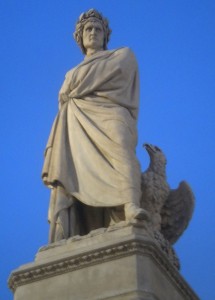
Machiavelli awoke such a firestorm by creating an ethics which works without God. Utilitarianism depends entirely on evaluating the earthly consequences of an act, and can be used as a functional system for decision-making whether or not there exists any external divine force or absolute code of Truth. He also painted a world of politics in which he recommends actions which are the same that one might take if there is no God watching. In order for people to be virtuous they must first be alive—doesn’t that sound like the sentiment of someone who isn’t thinking about Heaven? It is justified and necessary to kill and lie in order to protect the stability of the state and the lives of the people—doesn’t that sound like there isn’t a separate Judgment waiting? The man who will do so much—even serve the Medici who tortured him—in order to guard and protect Earthly Florence seems to have an Earthly mistress, and not to be thinking of a Higher One. He certainly talks like an atheist, and he certainly created the first system of politics and ethics which an atheist could coherently employ.
In addition to all this, there is what we can glean about religious attitudes from Machiavelli’s personal sentiments and behavior. We know that he was a military commander, and fought, and killed people. We know that he was what I think of as “averagely promiscuous” for a Renaissance man based on my experience of letters and autobiographies, which is to say that (while married) he had both male and female lovers, and wrote comfortably and playfully about friends doing the same. We know friends wrote to him for advice about their love-affairs, which he freely gave, though warning against getting too caught up in them. We know he helped his family in a push for a profitable priestly position for his brother, and was thus involved in minor acts of simony. We know he owned many pagan classics and loved to read them, including a fascinating little volume in his own handwriting (now at the Vatican) which contains his complete transcriptions of two texts, first Lucretius’ De Rerum Natura (On the Nature of Things, containing antiquity’s best account of god-free atomistic physics and denial of the soul, afterlife, Providence and prayer), and second Terrence’s Eunuch (containing one of the most uncomfortable scenes in all of ancient comedy which the young hero boasts triumphantly about having just committed rape). Machiavelli himself wrote the infamous comedy The Mandrake, which does not contain rape, but in which the twist is that in the end all the deception and adultery goes just dandy and in the end no comeuppance is had and everyone carries on committing deception and adultery and lives happily ever after, including those being deceived. We know he had a sense of humor, and we know he often directed it against the antics of priests and monks. I will include one sample of this edge of him, taken from a letter from late in his life, when he was sent on behalf of the Florentine wool guild to recruit a preacher for Lent (an extremely high-profile public performance, rather like picking who will play at superbowl half-time), Machiavelli wrote to his high-ranking political friend Guicciardini, from Carpi, May 17th 1521 (Note the playful way he juxtaposes the mandatory obsequious Renaissance opening address with the base setting of the second sentence.)

Magnificent one, my most respected superior. I was sitting on the toilet when your messenger arrived, and just at that moment I was mulling over the absurdities of this world; I was completely absorbed in imagining my style of preacher for Florence: he should be just what would please me, because I am going to be as pigheaded about this idea as I am about my other ideas. And because never did I disappoint that republic whenever I was able to help her out – if not with deeds, then with words; if not with words than with signs – I have no intention of disappointing her now. In truth, I know that I am at variance with the ideas of her citizens, as I am in many other matters. They would like a preacher who would teach them the way to paradise, and I should like to find one who would teach them the way to go to the Devil. Furthermore, they would like their man to be prudent, honest and genuine, and I should like to find one who would be madder than Ponzo (who at first followed Savonarola, then switched), wilier than Fra Girolamo (Savonarola), and more hypocritical than Frater Alberto (either a Boccaccio character or someone whom Alexander VI sent to Florence and who recommended summoning Savonarola to Rome so they could seize him under false pretenses), because I think it would be a fine thing – something worthy of the goodness of these times – should everything we have experienced in many friars be experienced in one of them. For I believe that the following would be the true way to go to Paradise: learn the way to Hell in order to steer clear of it. Moreover, since I am aware how much belief there is in an evil man who hides under the cloak of religion, I can readily conjure up how much belief there would be in a good man who walks in truth, and not in pretense, tramping through the muddy footprints of Saint Francis. So, since my imaginative creation strikes me as a good one, I intend to choose Rovaio (Riovanni Gualberto, “the north wind” or “the hangman”), and I think if he is like his brothers and sisters he will be just the right man.” (Translation from Machiavelli and His Friends, Their Personal Correspondence, James B. Atkinsons and David Sices eds. (DeKalb: Northern Illinois University Press) 1996, p, 336).
Later in the letter Machiavelli says that he is trying to come up with ways to actively stir up trouble among the monks he’s staying with just to entertain himself. This sparks a hilarious sequence in which Guicciardini starts sending Machiavelli letters with increasing frequency, and stuffing them with random papers to make the packages fat, to get the monks to think that some important political thing is going on. At one point a letter arrives saying that Guicciardini instructed the messenger to jog the last quarter mile so he would be sweaty and out-of-breath when he arrives, and Machaivelli describes with glee the increasing hubbub and attention he receives in the monastery as people become convinced that something of European import must be stirring. Unfortunately a later letter hints that Machiavelli thinks they are on to the prank, and the correspondence ends there.

You now have pretty-much as much evidence as anyone does about Machiavelli’s religious beliefs. Smells like an atheist, doesn’t he? His manifest unorthodoxy, the unique modernity of his ethics and political attitudes, and his playful anticlericalism, not to mention his charisma as an historical figure, inevitably tempt us into wondering whether we have found here a beautiful specimen of the rare beast we seek. But until we develop a time-traveling telepathy ray to let us read the thoughts of the dead, we must remain very wary. Is Machiavelli religiously unorthodox? Absolutely. Does he deny the existence of the divine? Perhaps, perhaps not. 1520 is very early, and there are many genres of heterodoxy besides denial of God which we may be smelling here. Thinking forward two hundred years, Enlightenment deism with its Clockmaker God denies divine intervention in Nature, removes the Hand of God from politics and lessens theology’s role in ethics without removing God. If Machiavelli is an early deist, rather than an early atheist, that is certainly enough to fit comfortably his model of politics without God as a central factor, his ethics which segregates Earthly activities and consequences from broader divine concerns, and his interest in Lucretius and pagan scientific models for how Nature can function without constant divine maintenance. If Machiavelli thinks these monks are corrupt and hypocritical, so would Voltaire, Rousseau, and even Martin Luther, without any of them being atheists. Radicals yes, atheists no. We may, in fact, ascribe any number of heterodoxies to Machiavelli, and as we review the history of writings about him we in a sense review the history of what radical religious veins we are most worried about, since whatever is most scary tends to be ascribed to him in any given decade. These days it is often atheism, nihilism, skepticism, rarely deism, since we are at present as a society very comfortable with the Clockmaker model and associate it more with the bright and kind Enlightenment than with he-who-advocates-fear-over-love.
Is Machiavelli an atheist? We have no idea, but by looking at why we want him to be, or don’t want him to be, or think he was, or think he wasn’t, and why new historians keep trying to answer this literally unanswerable question, we can watch the evolution of our own societal anxieties about the origins of unbelief, and how we understand how we got to this modern situation in which theism must stand constantly prepared to face its thousand enemies and is not (like Baldur) so secure in the presumption that no one will aim for the heart that it doesn’t realize it might have to dodge. This is a slight exaggeration, as Medieval Christianity did prepare itself for onslaughts of atheism, and we have numerous practice debates written by theologians showing how they would argue with imaginary atheists since they had no real ones about to spar with. (Alan Kors in his meticulous history Atheism in France has argued that these practice debates against pretend atheists were actually critical in introducing atheist arguments to broad audiences and thus themselves responsible for propagating atheism, even though they were written by theists for theists in a world populated probably only by theists.) But it is not much of an exaggeration, since such preparation was much more an academic exercise than real sharpening of mental blades. Since Machiavelli is the first of the great, famous possible-atheists—before Hobbes, before Spinoza, before Bayle, and before the real beast Rochester—Machiavelli is where we turn to test our anxieties about how our world came to be so secularized.
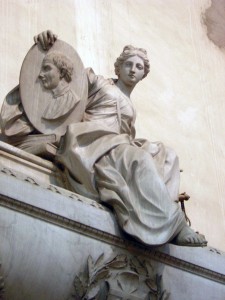
In the small talk phase of a party, I often answer “What do you do?” with “I study the history of atheism.” The response usually takes the general form of, “Tell me more!” but as discussion unfolds I often feel one of two undercurrents shaping my new acquaintance’s replies: either “I’m an atheist and, since I presume you’ll agree with me, I now want to vent at you about how much I hate organized religion and my parents,” or “I’m a theist but pride myself on being rational about it, and I’m scared that if I tell you I’m a believer I’ll sound like the kind of religious nut that gives theism a bad name.” I sympathize with the anxieties behind both these reactions, but both sadden me. They are symptoms of the debate done badly: an atheist motivated more by rebellion than by Reason, a theist shamed into buying into rhetoric in the worst sense. They are what happens when people grow up surrounded by others who care more about propagating their own beliefs than about helping young people meet and explore great questions for themselves (see comment thread). I love this debate. I love all of the people on all the sides. I love the passion, and earnestness, and urgency of writings on atheism, by both sides. It is the essence of the examined life and the exercise of Human Reason at its most intense. I love everyone involved: Plato, Aquinas, Ockham, Ficino, Sade, Nietzsche. I love when a student comes to my office hours and asks me directly, “I want you to be a Socratic gadfly for me and help me test my position,” whichever position it is. I do it. I love it. When I wonder whether Machiavelli was an atheist, it’s not because I want to know, but because I want to talk to him about it, at length, and we would stay up all night, and eat all the cheese and olives, and drink all the wine, and Voltaire would come, and Hobbes, and Locke, and Rochester and Rousseau would get plastered and piss themselves, and Diderot would help me mop it up while we talked about Leibnitz and the imperfection of Creation, and Machiavelli would keep pace with us even though most of the ideas in question would be two hundred years younger than him. They would be new to him, but he would understand them easily and join in comfortably to the debate. He should be there. There isn’t anybody else we know of from Machiavelli’s century who really should be there in the imaginary salon where we revisit the Enlightenment debates that made this modern era secular the way it is. Just Machiavelli. That’s why we can’t stop asking.
(Here ends my Machiavelli series. I hope you have enjoyed it, and thank you for being patient. Also, I have now added a substantial discussion of atheism in the classical world in the comment thread on this post, for those interested. You can also read my entries on remembering the Borgias, and the Borgias in TV dramas.)
If you’re interested in reading more about the history of atheism, skepticism, heterodoxy, deism and freethought, I recommend these sources:
- Allen, Don Cameron. Doubt’s Boundless Sea; Skepticism and Faith in the Renaissance. Baltimore, Johns Hopkins. 1964.
- Hunter, Michael and David Wootton ed. Atheism from the Reformation to the Enlightenment. Oxford: Clarendon. 1992.
- Kors, Alan Charles. Atheism in France, 1650-1729. Vol. 1, Princeton: 1990. (The long-awaited second volume is forthcoming.)
- Popkin, R. H. History of Scepticism from Savonarola to Bayle. Oxford: 2003. (Earlier editions of the book have titles, “History of Scepticism from X-other-dude to Y-other-other-dude. All editions are good, but the most recent is the most comprehensive.)
Also recommended:
- Betts, C. J. Early Deism in France, From the so-called ‘déistes’ of Lyon (1564) to Voltaire’s ‘Lettres philosophiques’ (1734). The Hague: Martinus Nijhogg Publishers. 1984.
- Buckley, Michael J. At the Origins of Modern Atheism. New Haven: Yale University Press. 1987.
- Febvre, Lucien. The Problem of Unbelief in the Sixteenth Century: the Religion of Rabelais. Cambridge MA: Harvard University Press. 1982.
- Ginsburg, Carlo. The Cheese and the Worms. New York: Penguin Publishers. 1992.
- Jacob, Margaret. The Radical Enlightenment: Pantheists, Freemasons and Republicans. London, Boston: Allen & Unwin. 1981.
- Kristeller, P. O. ‘The Myth of Renaissance Atheism and the French Tradition of Free Thought’. Journal of the History of Philosophy, 6 (1968), pp. 233-443.
- Lemay, J. A. Leo ex. Deism, Masonry and the Enlightenment. Newark: University of Delaware Press. 1987.
- Wagar, Warren W. ed. The Secular Mind: Transformations of Faith in Modern Europe. New York: Holmes & Meier Publishers inc. 1982.
- Wilson, Catherine. Epicureanism at the Origins of Modernity. Oxford: 2008
- Wootton, David. ‘Lucien Febvre and the Problem of Unbelief in the Early Modern Period’ The Journal of Modern History, Vol. 60, No. 4. (Dec., 1988), pp. 695-730.

